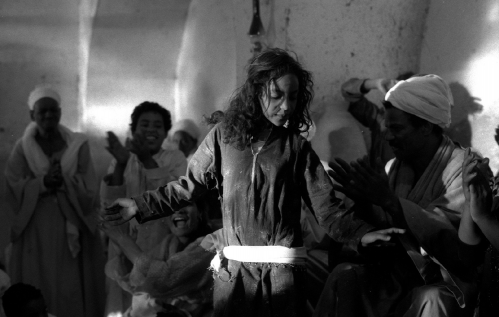
“There is no people so scattered over the earth as the gypsies,” wrote anthropologist Alfred von Kremer. “Homeless, yet everywhere at home.”
It is a romantic vision of an unromantic reality. To many, ‘gypsies’ are enthralling mystics; they are colorful characters homed in the works of Victor Hugo and the tirades of xenophobic, zealously-religious clustres. They embody an ‘Other’ so profoundly shunned and misunderstood that it is only allowed to exist within the margins of society.
Synonymous with the taboo and unsavory, many are startled to discover that the term ‘gypsy’ is appropriated from Egyptian, and owes its reputation to Eastern travelers crossing the threshold into medieval Europe. Despite being used in academia, today the word ‘gypsy’ is considered a derogatory oversimplification of their cultures, if not a slur altogether in social contexts.
In Arabic, they are the ghagar: pariahs associated with psychic, malevolent powers often attributed to the Romani (Roma) of Europe. Known also as the Domari (Dom), this subset of Eastern nomads are wanderers dispersed across Syria, Turkey, Palestine and Egypt. There is a shared, inherited stigma between the Roma and the Dom: for centuries, they have lived socially crucified across the Middle East and Europe.
Socially crucified, or entirely unacknowledged.
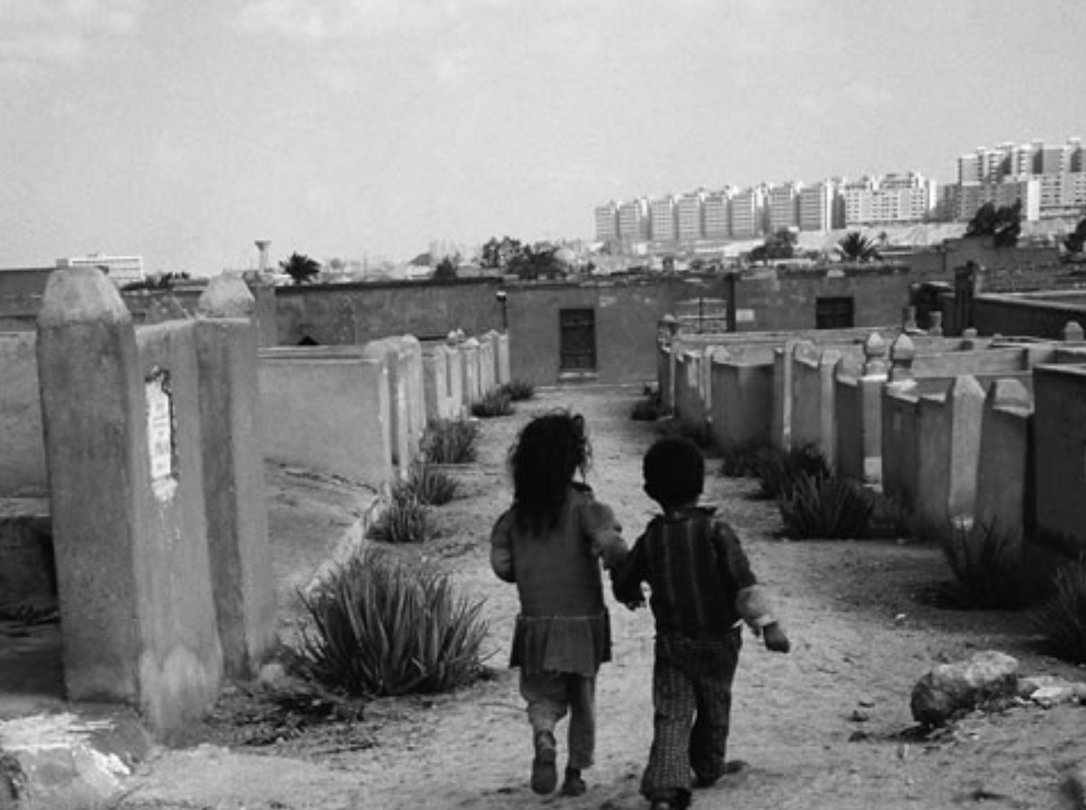
The Domari are not officially recognized in Egypt, much like most places, and this is by and large due to Egypt’s reliance on religion as a social identifier; when applying for a national identity card, the holder must subscribe to one of three religions: Islam, Christianity, or Judaism. Up until recently, those who fell outside the Abrahamic bracket were denied access to a national identity card, and by extension, denied access to local affordances.
Ethnicity and other such markers were not used. Groups whose “identity would be defined in ethnic terms,” such as the Bedouin, the Nubians, and the Domari, are institutionally and socially ignored. Their absence from academia also contributes to Domari erasure; while the Roma saturate gypsy literature, the Dom present more questions than answers, with relevant research founded on the backbone of assumption.
Even so, what literature is available on the Roma and Dom works more to antagonize than explain the intricacies of an opaque culture; it should be taken with a grain of salt.
For many locals, the ghagar are to be feared first—and studied, never.
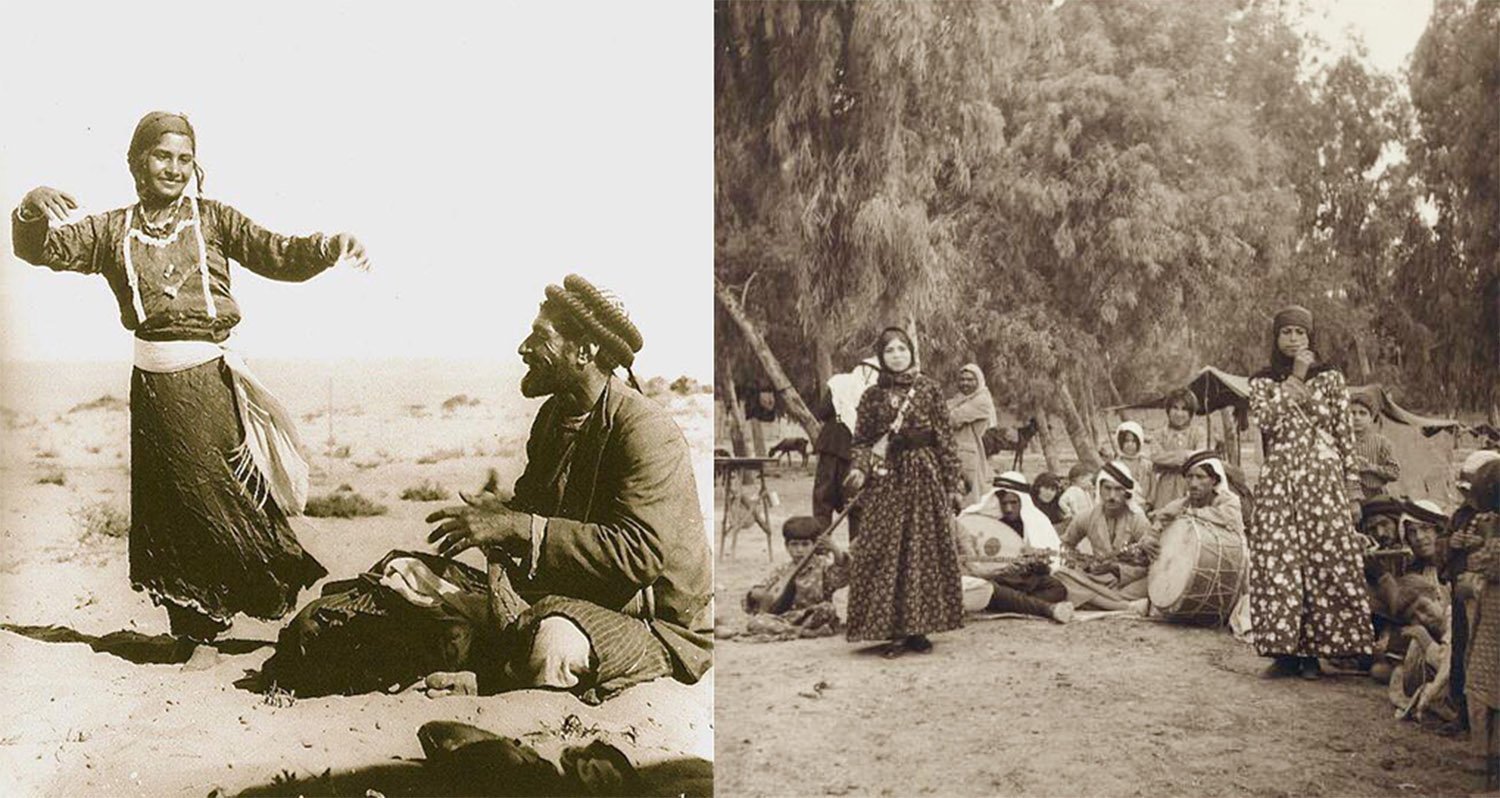
Diaspora in Focus
Ghagar is a collective term for all gypsies in Egypt. Despite this distilled identification, there are countless, diverse tribes across the region, with many describing themselves as “genuine Arabs [largely] proud of their pure Arabic descent.”
Still, the question of ‘who are the ghagar’ lingers with no definite origin or answer. Some scholars contest the Arab argument, insisting that the Dom are a “service-providing, itinerant community” with roots in South Asia, predominantly India. With no definite, tangible place of origin, the Domari are left reliant on their individual histories for identity formation.
Egyptians associate local Domari with exotic and dangerous entertainment; they travel through the country as snake-devouring dervishes and monkey showmen, fortune-tellers, dancers, and prostitutes who dabble in the occult. Despite their status as tools for local fear mongering, the Dom are involved quite heavily in rural horse trade, earning a reputation as inventive merchants.
However, their notoriety as elusive, dangerous entertainers is certainly overpowering. With many Dom communities participating in local festivities and mulids (carnival-like, Islamic ceremonies), their public image is intertwined with themes of anarchy, license, and the dismissal of gender segregation and sexual taboo. It seems that wherever the Dom go in Egypt, their norm is perceived as a “general hysteria” associated with “immoral arts.”
In more urban settings, they are considered beggars—recognized by their bleached yellow hair and ragged appearance. Of all the impoverished populations in Egypt, the Dom are significantly marginalized even within those communities.
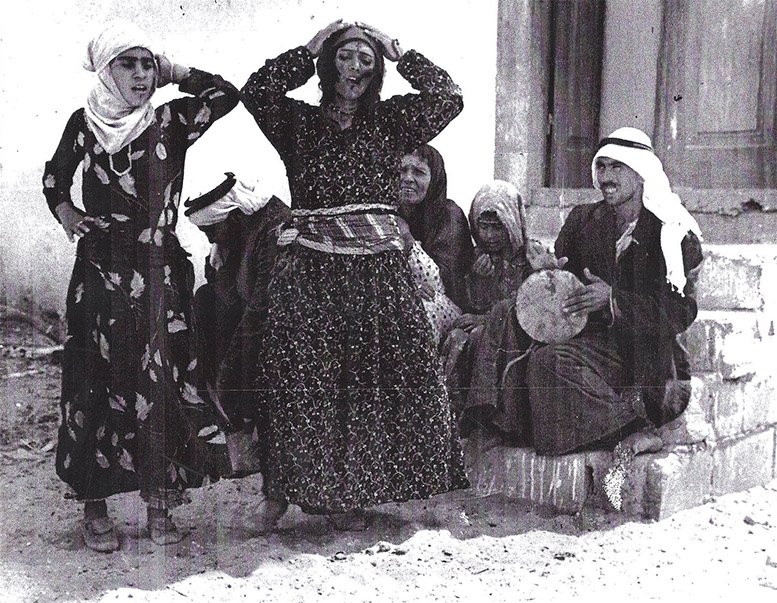
Ethnographer Alexandra Parrs recalls an incident wherein she was steered away from a Dom in the street; the woman had been clad in a abaya, selling what looked to be paper towels. Upon first glance, Parrs did not differentiate her from any other impoverished street-vendor. It was an Egyptian acquaintance who took Parrs by the elbow and saddled her with a warning: “be careful, she is a ghagar — she is a thief.”
The assumption that all Dom are entertainers and prostitutes, or beggars and thieves lives without credence; it is more banal stereotyping than truth. Not only does it contribute to rampant Othering, but serves a largely archaic, bigoted paradigm: Orientalism.
World-renowned scholar, Edward Said, suggested that the othering of Roma and Dom was a result of their exoticism within European contexts, and by extension, their oriental origin. Ironically, the Dom have been orientalized even within the so-called Orient itself.
Egyptians attribute Dom with the same “trichotomy of dangers, revulsion, and attraction that [is] associated with Arab men (dangerous fanatics, etc.) or women (sensual Harem creatures, etc.).” Male Dom are seen as untrustworthy, while their female counterparts are viewed as spell-casters and seductresses.
It is all the more reason to consume academic literature on the Domari and Romani populations with a fair bit of skepticism. With von Kremer quick to use language such as “thievish” and “disgusting” to describe Egyptian Dom, it would be a mistake to assume all literature is credible or impartial. This unprecedented need to construct a hostile narrative is not unique to von Kremer either, but rather European scholarship as a whole seems to extend its disservice of the Romani to Egypt’s Domari without much thought.
Treading with caution is vital, and avoiding von Kremer’s harsh grammar and strange aversion to the unorthodox is essential to unearthing an unprejudiced understanding of Domari existence.
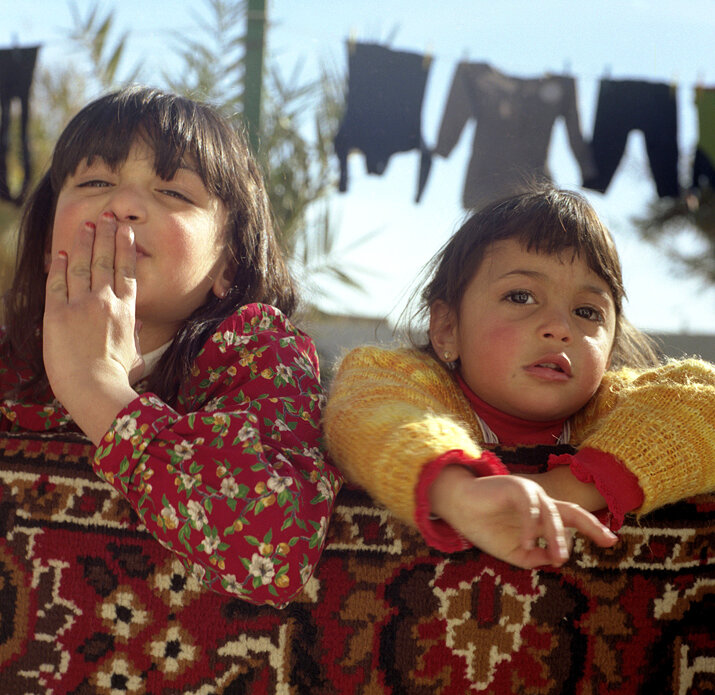
State-Uncertified Nomads
Candidly, the Dom do not exist in the eyes of the state—there has been no real effort to eradicate or assimilate them. While Europe’s Roma were subjected to forceful integration or permanent marginalization, the ghagar populations in Egypt are faced with different odds. Nomadism in Egypt is not a form of defiance, but rather is a historically integrated aspect of Egyptianism; thus, the Dom easily fall under the radar as they move from locale to locale within the state.
Nabil Sobhi Hanna’s ethnographic study, conducted nearly five decades ago, painted a tale of semi-nomadic Dom who inhabited the fringe villages of the Nile Delta. Without mystique, they were granted recognition; they were iron-workers and merchants, wool traders and blacksmiths, individuals who elevated their skills independently of recognition.
Most recently, the Dom have become intertwined with the Cairene downtown, settling in neighborhoods such al-Sayida Zeinab, or el-Zabaleen (City of Garbage)—expanded to include the City of the Dead. There they are “tinkerers [and] trash collectors, shearers, saddlers, musicians, and dancers,” a plethoric display of contemporary activity. Hanna’s study observes that, while most Egyptian Dom sedentary, they are mobile within their neighborhoods and rely on short-term spatial mobility.
They rent their homes, they work short-term jobs, and change spots within their communities.
Despite their salient presence, however, they still exist in Egypt’s footnotes rather than its front pages; most Egyptians “are not aware of the presence of gypsies,” and only upon further prodding do they realize how present the Dom actually are. Much like they exist in the margins of the Egyptian community, they seem to also exist in the “margins of people’s subconscious, and can easily materialize” when prompted.
The Domari, it seems, are a fragment of the Egyptian populace that sits between the unknown and the undefinable, between the loved and feared, the mystic and the godless.
One only has to look.







Comments (2)
[…] Artikel zu den Roma and Dom in Kairo, 2022: https://egyptianstreets.com/2022/04/07/homeless-yet-at-home-egypts-domari-ghagar/ […]
[…] like the Domari of Egypt, the Beja are an interesting subset of Egyptianism – removed from the status quo, yet […]